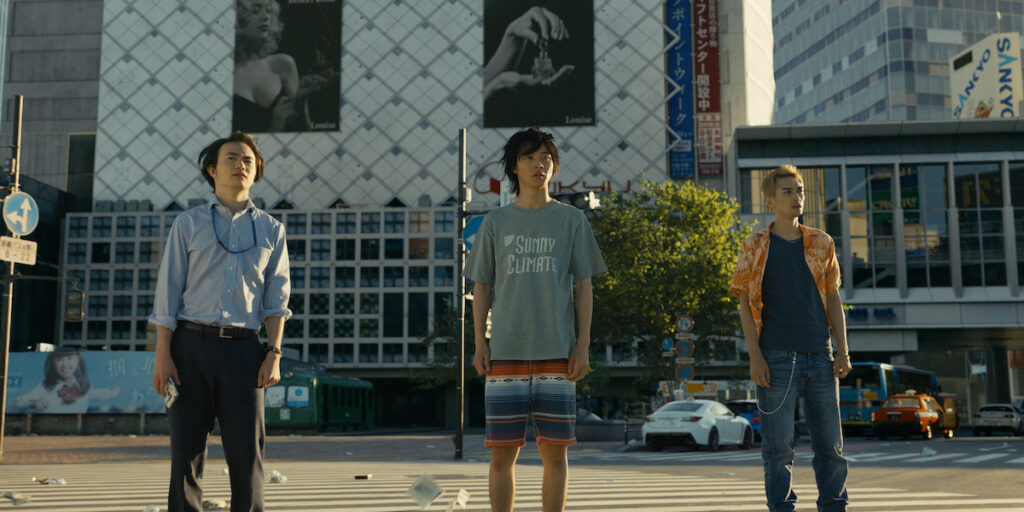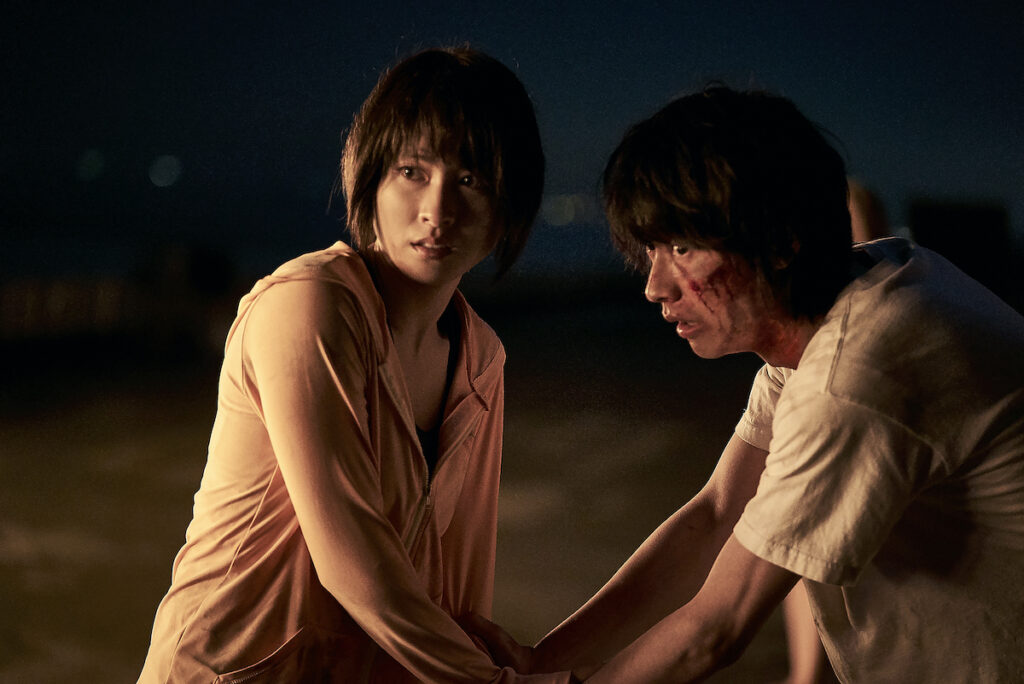
One of the most important lessons that the Netflix Original Series “Alice in Borderland” teaches us is that living is different from just surviving.
And that even when we succumb to despair and are ready to give up on life, we can find someone or something to continue living for.
“I made the effort to cook that for you, so you should eat it before you die,” one character tells someone who has lost the will to live, in an episode that perfectly encapsulates this difference between living and surviving. A live-action adaptation of Haro Aso’s manga series of the same name, “Alice in Borderland” is a sci-fi suspense thriller that is so brutal and gory that it makes “Squid Game” look like child’s play. The global popularity of “Squid Game” is actually what has brought “Alice in Borderland”, which premiered on Netflix in December, back to public consciousness. Yet while they might both have “death games”, the two dramas are different animals. Plus the games in “Alice in Borderland” are grander in scope and have a method to their madness — with clever twists and logical puzzles that viewers can also try to solve.
Life is a game
“Once you cross the borderline, you can never return. You have no choice but to participate in the game,” Saori Shibuki (Ayame Misaki) tells a shocked trio of best friends — Ryohei Arisu (Kento Yamazaki), Daikichi Karube (Keita Machida), and Chota Segawa (Yuki Morinaga) — when they first join a game.
The three longtime friends are completely bewildered. They had met up in Shibuya Crossing to cheer each other up because they are all having a bad day, only to discover that things have become infinitely worse when they find themselves in an apparently abandoned Tokyo. Shibuki is the first other person they meet, and they barely have time to process things before they are immediately thrust into their first game.
The great thing about this stylish and ultraviolent series — which draws comparisons to the cult classic “Battler Royale” — is that it dispenses with exposition and world-building and just takes viewers along on a wild ride. Then it uses flashbacks to give us the backstories and motivations of different characters, and shows us that people are not always who they appear to be.
As a jobless young man who is obsessed with playing video games, Arisu finds himself in the unlikely role of savior. His friends rely on his logical mind and skills as a gamer to keep them alive in these deadly contests. Winning means they get to stay alive longer, as once they complete a game and collect the playing card, they renew their visa for an equivalent number of days. Once their visa expires, they are executed by red lasers that shoot out from the sky. So they must keep playing and surviving, competing against different players along the way.
Who deserves to live?

The sheer brutality of this alternate Tokyo forces us to ask ourselves: who deserves to live? Should we be determined to survive no matter the cost, and sacrifice everyone to save ourselves?
Should people who are more useful be the ones allowed to live? Those who have jobs, families, and other responsibilities waiting for them in case they can make it back to the normal world?
Those who still have dreams that they are determined to turn into reality?

Those who believe they are giving others some meaning, a reason to hope in this strange world where nobody knows the rules?
“Alice in Borderland” doesn’t offer any easy answers. But even though Season 1 only has eight episodes, this series does a masterful job of making us care and somehow understand each character. And in the midst of all this death, somehow, we learn to appreciate the value of living in the moment, and never taking anything for granted.
Promises to keep

Living is more than just surviving.
It is about finding someone or something that will give meaning to our existence. Whether it is someone who needs us, or a promise that we want to keep.
“Alice in Borderland” will let you meet many memorable characters, whom you will love and hate — maybe both at the same time. Of course, the title itself shows the influence of the classic children’s novel “Alice’s Adventures in Wonderland” by Lewis Carroll. As well as other elements, like the playing cards, and the names of the characters, including Arisu, Hatter (Nobuaki Kaneko), and Yuzuha Usagi (Tao Tsuchiya) — Usagi being Japanese for “rabbit”.

Like Wonderland, this world can be utterly bewildering, impossibly cruel, and maddeningly illogical. But then again, so is real life.
In one of the flashbacks, Usagi is shown bonding with her father after they have reached the peak of the mountain they were climbing. She asks him what he would wish for if God exists. And he says he would ask God to create more mountains around the world — mountains that no human has ever climbed.
Then he asks Usagi what her wish would be. Her reply?
“Please let things stay like this forever.”
Just stay alive. That would be enough.

